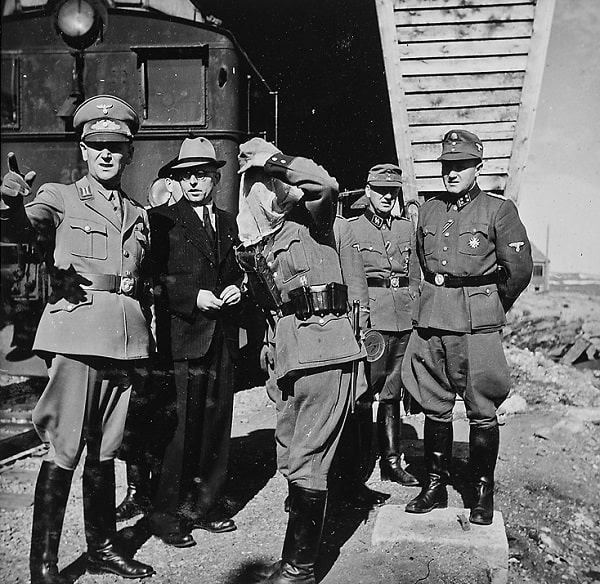What is often stressed with reference to WWII is the “neutrality” of a small number of countries, which did not participate in the armed conflict. At the same time, one fails to address the essential question of why it did not take Germany, humiliated after the First World War, long to build up a strong and modern army. The answer resides in the covert operations and secret rearmament on part of some countries with respect to Germany, Sweden being the most conspicuous example. Consequently, Germany was able to recover its military strength and demand the revision of the 1919 peace treaties. Sweden’s activities in that regard did not escape the notice of the then Polish press, aware of the role played by Poland’s northern neighbour in the economic policy of Germany especially in the arms industry.
At the beginning of August 1939, the “Słowo Pomorskie” daily rightly pointed out that assuming control of the Baltic Sea was indispensable for Germany in the light of the fact that sea constituted (…) a transport route for Sweden’s iron ore. This must not be glossed over. Every year German merchant ships embark on 1300 voyages transporting 5 million tons of ore. Without the Swedish ore, the Third Reich will not be capable of waging a war. The Germans are not in possession of ore reserves on their own territory (…) Germany takes this issue very seriously and every effort is being made to shorten the route by moving transport hubs northernmost. After all, this was the idea behind capturing Klaipėda. [1]
The above words find support in the calculations made by German newspapers coming out at the time according to which up to 70% of iron produced in Germany came form foreign ores. That is why Germany spent the equivalent of 250 and 300 million marks in foreign currency. Sweden was the most important supplier of ores the bulk of which was used to finance the armament of German troops. [2]
Little is known about the cordial relations between Sweden and the Third Reich. However, whilst the economic cooperation prior to the outbreak of WWII could be explained in commercial terms, the continuation of the industrial cooperation in the aftermath of 1st September 1939 coupled with Sweden’s subsequent declaration of neutrality is highly condemnatory. The more so as the construction of German artillery and armoured divisions responsible for the devastation of Poland during WWII would not have been possible without the prior supplies of Swedish ore.
[1] Iron ore on its way to Germany along the Baltic Sea, “Słowo Pomorskie”, 1939, issue 181, p.3.
[2] How much do the ore imports cost Germany? “Słowo Pomorskie”, 1939, issue 181, p.5.
[Wróć do tekstu w języku polskim]
Podoba Ci się to co robimy? Wesprzyj projekt Magna Polonia!





